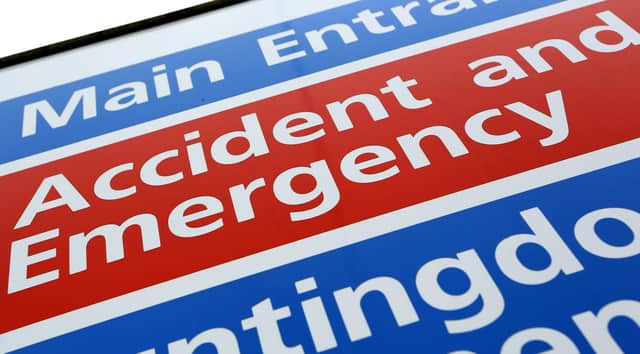Drop in visits to A&E at Barking, Havering and Redbridge University Hospitals last month


Fewer patients visited A&E at Barking, Havering and Redbridge University Hospitals last month – but attendances were higher than over the same period last year, figures reveal.
NHS England figures show 23,739 patients visited A&E at Barking, Havering and Redbridge University Hospitals NHS Trust in February.
Advertisement
Hide AdAdvertisement
Hide AdThat was a drop of 4% on the 24,624 visits recorded during January, but 56% more than the 15,263 patients seen in February 2021.
The figures show attendances were below the levels seen before the coronavirus pandemic – in February 2020, there were 24,171 visits to A&E at Barking, Havering and Redbridge University Hospitals.
Around 49% of attendances last month were via major A&E departments – those with full resuscitation equipment and 24-hour consultant-led care – while 42% were via minor injury units.
Meanwhile, around 9% were via consultant-led departments with single specialties, such as eye conditions or dental problems.
Advertisement
Hide AdAdvertisement
Hide AdAcross England, A&E departments received 1.8 million visits last month.
That was a decrease of 3% compared to January, but 43% more than the 1.3 million seen during February 2021.
At Barking, Havering and Redbridge University Hospitals NHS Trust:
In February:
61% of arrivals were seen within four hours, against an NHS target of 95%
1,588 patients waited longer than four hours for treatment following a decision to admit – 7% of patients
Of those, 732 were delayed by more than 12 hours
Separate NHS Digital data reveals that in January:
The median time to treatment was 139 minutes
Around 9% of patients left before being treated